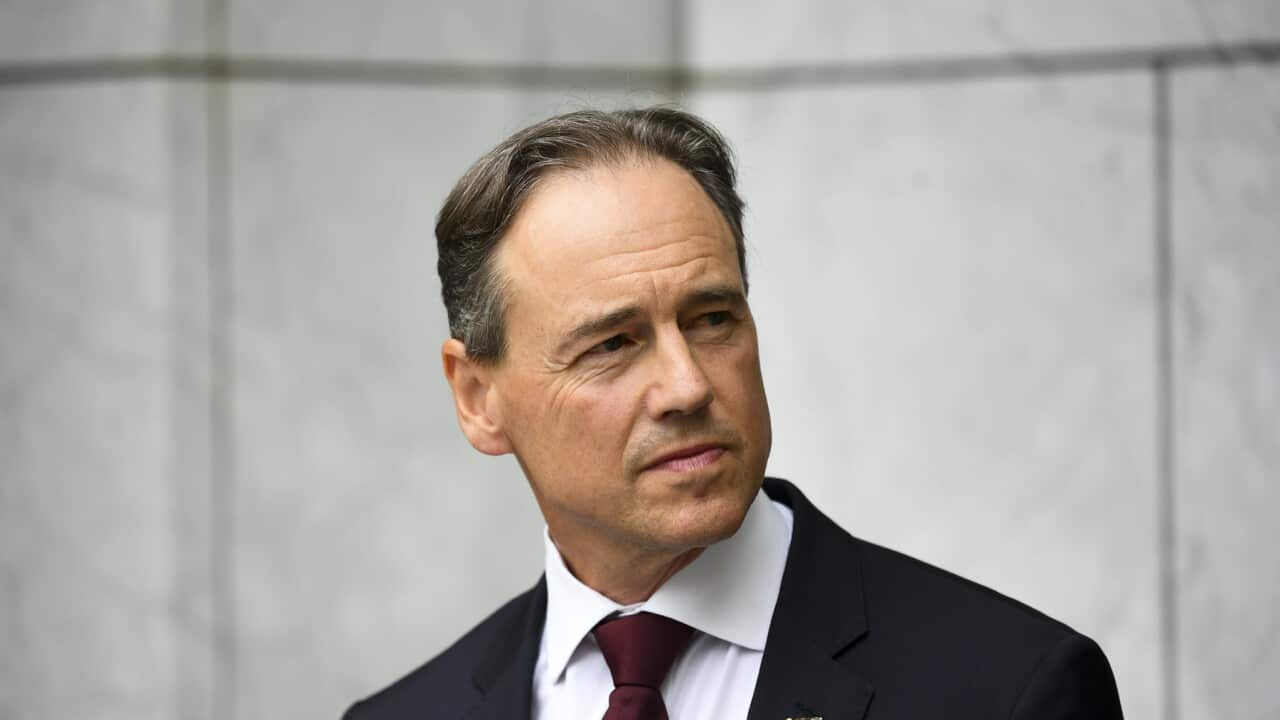The chief medical officer has sought to quell concerns that the vaccine Australia will have as its mainstay is ineffective against new variants of coronavirus.
Australia has so far had in its hotel quarantine system 87 cases of the so-called UK variant and 18 of the South African variant of COVID-19, which are showing some evidence of being more easily transmitted and more severe than earlier forms of the virus.
Professor Paul Kelly said he was concerned about reports suggesting the AstraZeneca vaccine might not be useful against the South African variant.
South Africa suspended its rollout of the vaccine after some data showed it gave minimal protection against mild to moderate illness caused by the country's new strain of the virus.
"At the moment, I can absolutely say ... there's no evidence anywhere in the world AstraZeneca effectiveness against severe infection is affected by any of these variants of concern," Professor Kelly told reporters in Canberra on Tuesday.
He said the reports were based on a small group of people in a study not yet peer-reviewed or published in South Africa.
Health officials in the next few days will be discussing the AstraZeneca vaccine with their UK counterparts in order to get more detailed information ahead of the rollout. Australia has secured 50 million doses of that vaccine.
"(We want) to really look carefully at what are their experiences in relation to the very widespread use of AstraZeneca in that country across all age groups," Professor Kelly said.
Labor and the Greens say the government should expand its portfolio of vaccines to include the Moderna version - a messenger RNA vaccine which experts say can be easily modified to deal with new variants of COVID-19.
Professor Kelly said there was some advantage in using such vaccines, "but you still have those issues about being able to get adequate supply and going through regulatory processes".
Australia has ordered another type of MRNA vaccine, Pfizer, which European authorities on Tuesday said would flow through as ordered.
The federal government has ordered 20 million doses of the Pfizer vaccine, which are being produced in Europe and will start to be rolled out in Australia in late February.
There were fears the order could be delayed after the EU placed export controls on vaccines produced in its territory.
But the EU ambassador to Australia promised Europe would not delay or block the order.
"Australia can indeed rely on deliveries from Europe," Michael Pulch told ABC radio.
"The shipments to Australia will arrive on time. My colleagues in Brussels have assured the Australian side that they will work with them on the smooth authorisation process."
Professor Kelly said work was under way with overseas partners on vaccine certificates for travellers, but the main focus was on the Australian vaccine rollout and ensuring hotel quarantine remained effective.
People in Australia must stay at least 1.5 metres away from others. Check your jurisdiction's restrictions on gathering limits.
If you are experiencing cold or flu symptoms, stay home and arrange a test by calling your doctor or contact the Coronavirus Health Information Hotline on 1800 020 080. News and information is available in 63 languages at .
Please check the relevant guidelines for your state or territory: , , , , , , , .











